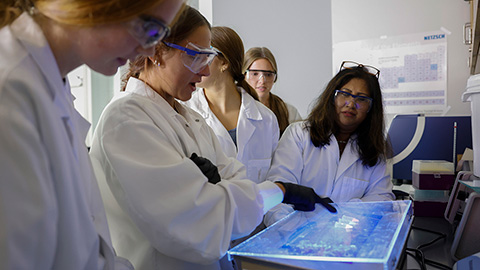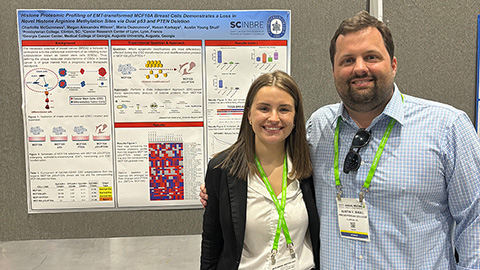A belated love letter
to my first-grade
science teacher
You charged onward when one-third of the class was picking their noses and the girls were busy combing each other’s hair. You knew sooner or later you would corral our attention, because you had a magic show in store for us.
Just as it started to look like the day’s curriculum was slipping from your grasp, you seemingly defied the laws of physics when you intercepted a paper plane at midflight and swiftly diverted it into the recycling bin, all in one fluid motion. You then taught us the fundamentals that made such a feat possible.
With mouths agape and pupils dilated, we watched you pace back and forth in front of the chalkboard like a Roman general confident in her battle strategy. You proceeded with an array of examples to help our mushy minds comprehend the revolution happening before our eyes. You blew our minds into a billion pieces and then reconstructed them, and our way of thinking hasn’t been the same since then.
True, your subjects were probably too complicated for our reading level, especially considering that the first-grade science teachers in other schools were dazzling their students with textbooks stacked on a desk like steps to demonstrate that day’s subject: center of gravity. That’s cool enough, but you had a different approach, kind of like Mr. Keating in “Dead Poets Society.” Rather than show us what science what was capable of, you taught us what we were capable of when we learned the fundamentals of science.
You gave us the keys to the kingdom. You let us examine the laws of momentum in swings and how gravity provides the fun factor on seesaws. You let us dig in the dirt for arrowheads and told us in a semiwhisper, as if sharing the secrets of the universe, that we held millions of years of history in the palms of our hands. You let us observe the different kinds of clouds that resembled our favorite cartoon characters, teaching us why some looked like Mickey Mouse, while others looked like Peter Pan in flight. By helping us look at our surroundings in a different light, you essentially gave us the world.
With the salary you earned, you didn’t need to go that far or try that hard, but you did, because you believed in us. It is commonly thought that what children absorb early in life affects how they will behave and think when they become older. So as an adult writing this to you many years later, I just wanted to say one last time: Thank you for exposing my mind to the beauty of life rather than corrupting it with negative words.
Enjoy reading ASBMB Today?
Become a member to receive the print edition four times a year and the digital edition monthly.
Learn moreGet the latest from ASBMB Today
Enter your email address, and we’ll send you a weekly email with recent articles, interviews and more.
Latest in Opinions
Opinions highlights or most popular articles

The tortoise wins: How slowing down saved my Ph.D.
Graduate student Amy Bounds reflects on how slowing down in the lab not only improved her relationship with work but also made her a more productive scientist.

How pediatric cataracts shaped my scientific journey
Undergraduate student Grace Jones shares how she transformed her childhood cataract diagnosis into a scientific purpose. She explores how biochemistry can bring a clearer vision to others, and how personal history can shape discovery.

Debugging my code and teaching with ChatGPT
AI tools like ChatGPT have changed the way an assistant professor teaches and does research. But, he asserts that real growth still comes from struggle, and educators must help students use AI wisely — as scaffolds, not shortcuts.

AI in the lab: The power of smarter questions
An assistant professor discusses AI's evolution from a buzzword to a trusted research partner. It helps streamline reviews, troubleshoot code, save time and spark ideas, but its success relies on combining AI with expertise and critical thinking.

How AlphaFold transformed my classroom into a research lab
A high school science teacher reflects on how AI-integrated technologies help her students ponder realistic research questions with hands-on learning.

Writing with AI turns chaos into clarity
Associate professor shares how generative AI, used as a creative whiteboard, helps scientists refine ideas, structure complexity and sharpen clarity — transforming the messy process of discovery into compelling science writing.

